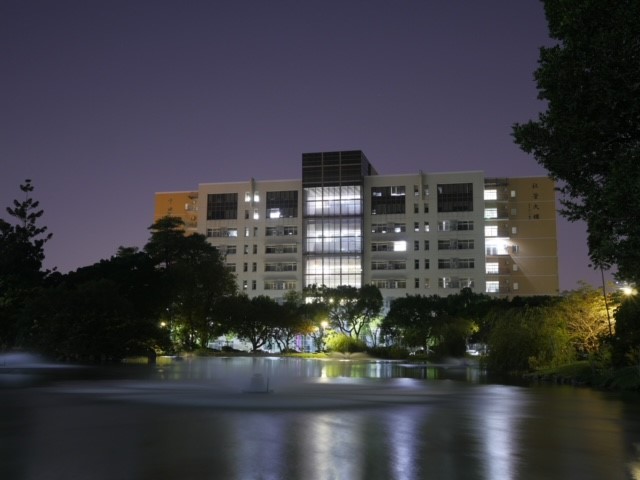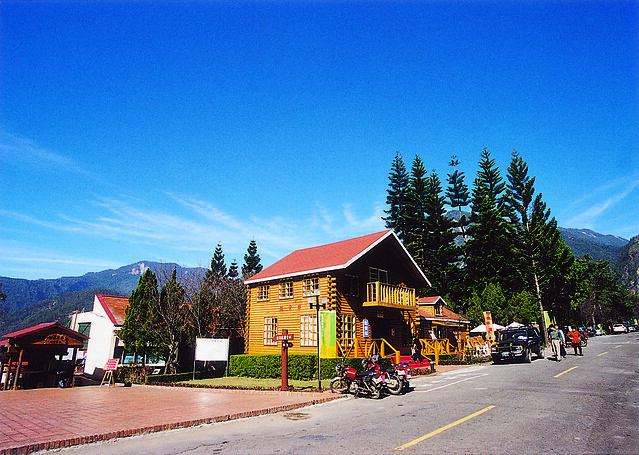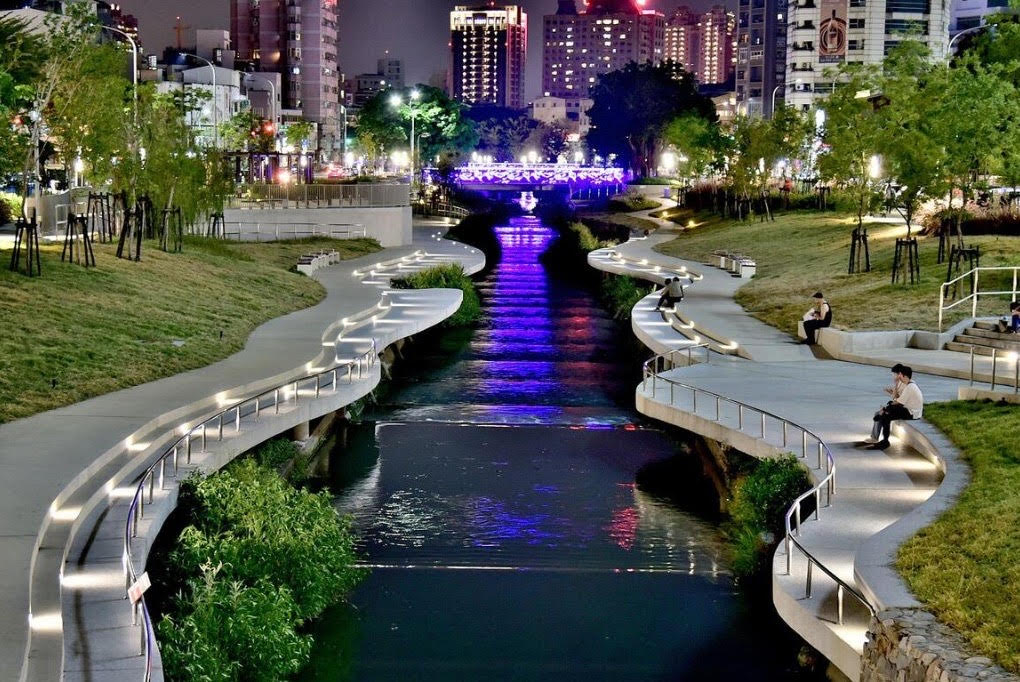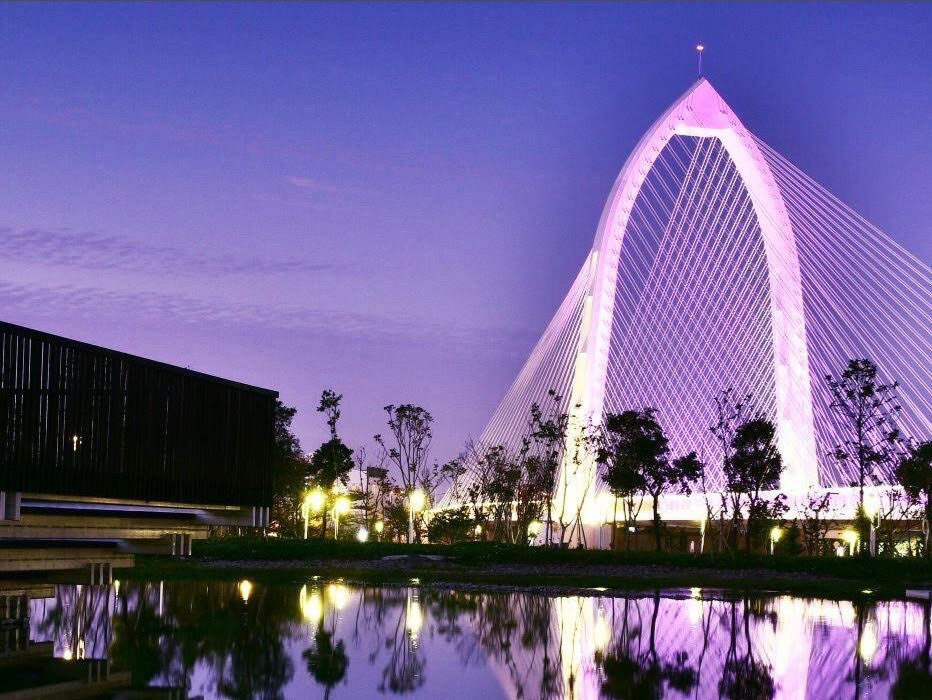This article was published in the Autumn 2022 issue of Litterae Populi. The full issue can be found here.
Dr. Suefong Lin
Professor, Law Department, Central Police University.
Chairperson, Hokkaido University Taiwan Alumni Association.
I was appointed as an Ambassador in 2019 with the kind support of the Hokkaido University’s Institutes for International Collaboration, and I felt responsible for activities appropriate to my status as an Ambassador. I wanted to introduce Hokkaido University to young people in Taiwan to motivate them to study abroad, and at the same time, to provide support to Hokkaido University-related parties who are staying in Taiwan.

College of Law and Politics, National Chung Hsing University (Social Science and Management Building). (Photo: Wang Yung-chi, provided by College of Law and Politics, National Chung Hsing University)
However, due to the COVID-19 outbreak, I have not been able to do much as an Ambassador. In June 2019, before the COVID-19 disaster, there was a gathering of Ambassadors and a dinner meeting between ambassadors from different countries and international students from the same countries was arranged by the department in charge of international relations of Hokkaido University. There, we learned about the problems that the international students were facing and were able to discuss solutions with the executives of the Hokkaido University Taiwan Alumni Association. I think this exchange event between Ambassadors and international students was very much appreciated.

Huisun Experimental Forest Station. (provided by Gallery of University History, National Chung Hsing University)
At my university, the faculty, staff, and students are required to take and record their body temperature immediately after entering the campus and are encouraged to manage their own health. In addition, off-campus visitors are required to pass through a thermometer located at the main gate of the university, and only those with normal body temperatures are allowed to enter the university. In spite of this situation, I would like to promote Hokkaido University at universities in Taiwan as much as possible and give advice to students who are interested in studying at Hokkaido University.
I live in Taichung City, which is said to have the best weather in Taiwan. I have always wanted to experience life in the North, and I decided to ignore the concerns of my parents and friends and came to Sapporo to study at Hokkaido University. One of the reasons was the climate. I felt that the four seasons in Taichung City do not change much and the city is always green—making it in some ways less interesting and less enjoyable than Sapporo, which has four distinct seasons. I had never seen snow before coming to study in Japan, so when I saw snow for the first time, I thought I was dreaming.

Taichung Yanagawa Waterway. (provided by: Tourism Bureau, MOTC, Taiwan)
Taichung City is located in the center of western Taiwan and has been praised as a “cultural castle” or “little Kyoto” for many decades because of its fine weather and the comfortable lifestyle of its citizens. My alma mater, National Chung Hsing University*, is the only national university in Taichung City. The relationship between National Chung Hsing University and Hokkaido University is very close, although I was unaware of this fact during my study at Hokkaido University in 1989. The predecessor of National Chung Hsing University was the Government-General of Taiwan’s Advanced Academy of Agronomy and Forestry, established in 1919 during the Japanese colonial period (renamed Government-General of Taiwan’s Taichung Advanced Academy of Agronomy and Forestry in 1944). The largest of the four affiliated forests was the Hokkaido Imperial University Experiment Forest. With its beautiful scenery, National Chung Hsing University and its affiliated forests have become popular tourist attractions, especially the Huisun experimental forest station, which is now open to the public with lodging facilities and coffee shops, and is very popular with Taiwanese people for its fresh air and scenic beauty.

Taichung Central Park. (provided by: Tourism Bureau, MOTC, Taiwan)
In any era, the ambitions of young people are the driving force of social progress, so I believe that Dr. Clark’s phrase “Boys, be ambitious” will remain important for the members of Hokkaido University.
*University reform in Taiwan resulted in the Taipei Campus of the National Chung Hsing University, including the College of Law and Business, becoming independent in 2000 and becoming the current National Taipei University. Later, the National Chung Hsing University in Taichung City added the College of Law and Politics and established the Department of Law.
This article was published in the Autumn 2022 issue of Litterae Populi. The full issue can be found here.
Global News and Health Forum
Comments (0)